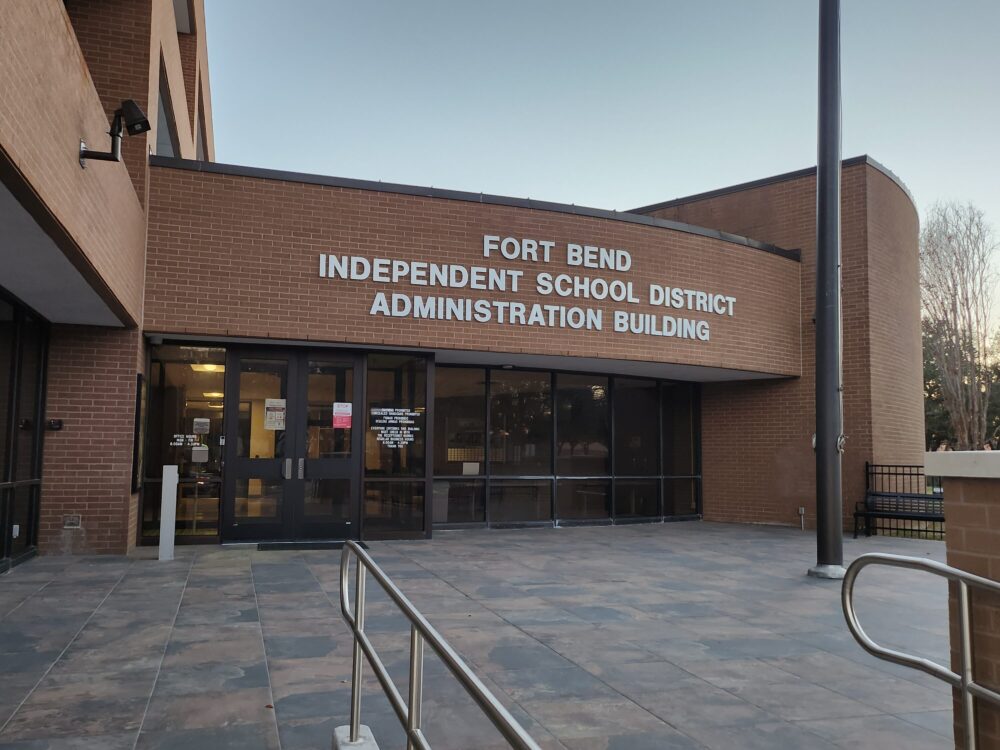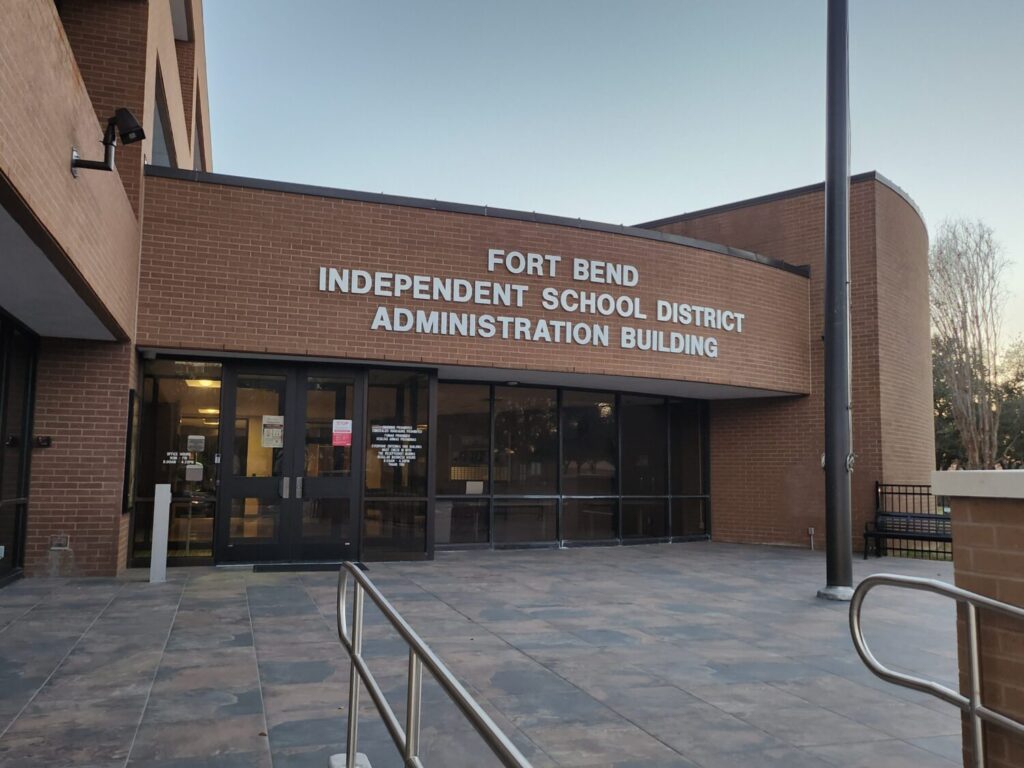
Ariel Worthy/Houston Public Media
A woman was removed from a Fort Bend ISD board meeting on Monday after urging trustees to refrain from adopting Texas’ Bible-infused curriculum — and flipping off a board member she called fascist.
The woman was one of nine people who spoke in opposition of the curriculum during the board’s special called meeting on Monday, when trustees were briefed on Bluebonnet Learning, a state-developed elementary curriculum that includes biblical references in reading and language arts lessons. The curriculum has received backlash from Texas teachers, students and advocates who argue it’s selective on which religions should be included in studies.
Texas school boards have in recent months taken up discussions on whether or not to adopt the Bluebonnet Learning curriculum. Trustees for Fort Bend ISD, a Houston-area district that touts itself as one of the most culturally diverse school districts in the state, did not vote on the curriculum Monday and did not indicate if or when they plan to take such a vote.
Minutes before she was escorted out of the building, the woman who voiced opposition to the curriculum, who said she has three children in the district, said the Bible-infused lessons were a clear violation of the establishment clause of the First Amendment to the U.S. Constitution, which ensures a separation of church and state.
“You can’t choose to elevate one religion over another and that’s what this Bluebonnet curriculum does,” she said. “It puts Christianity over everybody else.”
The meeting became more tense after she made an obscene gesture toward a trustee and was ordered to leave the building. Trustees eventually called a 5-minute recess so police could escort the woman out of the building.
Other district parents on Monday said adopting the curriculum would be unconstitutional and open up the district to costly legal challenges.
Parent Shawn Quinn said she doesn’t want the school district teaching her child about Christianity or any other religion.
“I see no need to be teaching about the parables from Jesus, the prodigal son, the good Samaritan and whatnot that I’m seeing in this material to third graders and second graders,” Quinn said. “I will teach that to my child. The idea of you all trying to indoctrinate my child with whatever weird curriculum has been devised is absolutely maddening to me.”
The Texas State Board of Education in November gave final approval to Bluebonnet Learning, despite criticism. School districts in the state are not required to adopt the curriculum, but there are financial incentives for those that do.
Fort Bend ISD’s discussion came a month after Conroe ISD school board trustees approved the controversial curriculum despite the objections of some parents in the district north of Houston.
In January, Houston Public Media asked school districts across the region whether they planned to implement the Bible-infused curriculum. Only Bay City ISD said it had decided to do so, depending on whether it could secure grant funding, while some said they were not considering it and others did not respond.
RELATED: Conroe ISD trustees approve Bible-infused curriculum for elementary schools
During Fort Bend ISD’s regular meeting Monday, trustee Rick Garcia said he’s spoken with attorneys, members of faith-based organizations and a member of the state board of education about the curriculum and received mixed reviews.
“I incorrectly referred to it as a Bible curriculum, because it also has mentions of other faiths in a historical context,” he said. “There are some lessons that I would probably consider a little close to the edge of what some are upset about.”
At least 29 units of instruction in Bluebonnet Learning have religious references, according to district documents.
Trustee David Hamilton argued that the district is already in violation of the establishment clause because “secular humanists” have set the standard for religious neutrality in the district, and the general expectation for district students and employees is that they function “basically as atheists.”
“They can have their faith at home,” he said. “There are ways that they can demonstrate their faith while they are at school. In many ways, they’re expected to check their faith at the door so that we can act while we are at school in a way that is functionally atheistic.”

